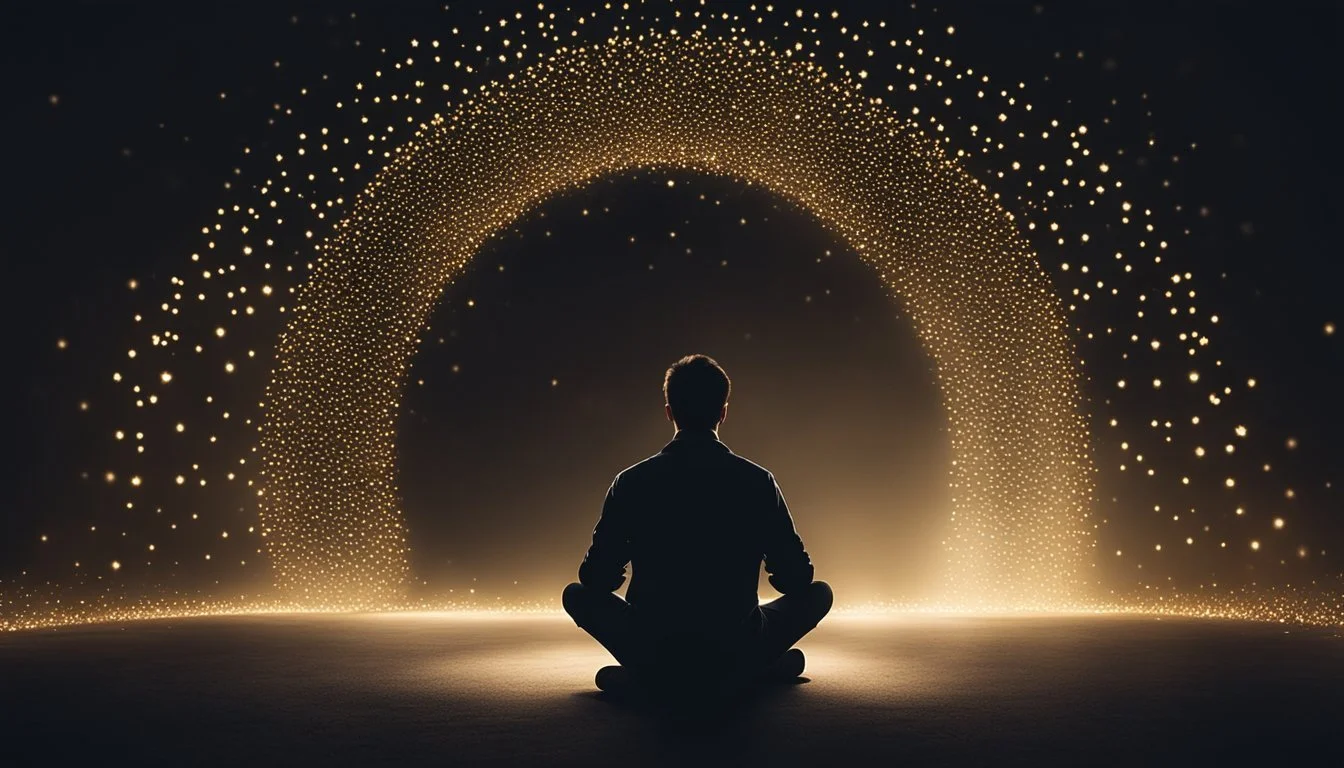6 Documentaries That Investigate the Role of Love in Recovery
Healing Through Connection
Documentaries exploring addiction and recovery often focus on the scientific and societal aspects of substance abuse. However, a select few films delve deeper, examining the powerful role that love and relationships can play in the healing process. These documentaries offer unique perspectives on how emotional connections impact recovery journeys.
By showcasing real stories of individuals supported by loved ones, these films highlight the transformative power of compassion and human connection in overcoming addiction. They provide valuable insights into the complex interplay between personal struggles, family dynamics, and romantic partnerships during the challenging path to sobriety. Through intimate portrayals and expert commentary, viewers gain a nuanced understanding of how love can serve as both a motivator and a source of strength in recovery.
1) 'Crazy, Not Insane' by Alex Gibney (2020)
'Crazy, Not Insane' explores the complex relationship between mental health and violent behavior. The documentary focuses on Dr. Dorothy Otnow Lewis, a psychiatrist who has dedicated her career to studying the minds of murderers.
Dr. Lewis challenges conventional notions about serial killers and the death penalty. She argues that severe childhood trauma and neurological damage often play crucial roles in shaping violent criminals.
The film features interviews with Dr. Lewis and examines her research on notorious killers. It delves into her controversial theories about multiple personality disorder and its potential link to violent crime.
Director Alex Gibney presents a thought-provoking look at the nature of evil and the possibility of rehabilitation. The documentary raises important questions about the criminal justice system and society's approach to mental illness.
'Crazy, Not Insane' offers a unique perspective on the psychology of murder. It encourages viewers to reconsider their assumptions about criminal behavior and the human mind.
2) 'Heal' directed by Kelly Noonan Gores (2017)
'Heal' explores the power of the mind-body connection in overcoming illness. The documentary features interviews with experts in science, medicine, and alternative healing practices.
Kelly Noonan Gores, the director, writer, and executive producer, brings together diverse perspectives on self-healing. The film follows several individuals who used mind-body interventions after receiving serious medical diagnoses.
'Heal' examines how changing one's perceptions may influence physical health outcomes. It presents both scientific and spiritual approaches to healing, offering viewers a balanced look at different treatment modalities.
The documentary includes insights from prominent figures like Deepak Chopra, Dr. Joe Dispenza, and Gregg Braden. Their expertise helps illustrate the film's central themes about the potential for mental and emotional factors to impact physical wellbeing.
While some critics viewed the film as promotional in nature, others appreciated its exploration of holistic healing concepts. 'Heal' encourages viewers to consider the role of mindset in recovery processes.
3) 'Love, Antosha' about Anton Yelchin (2019)
'Love, Antosha' is a documentary that explores the life and career of actor Anton Yelchin. Directed by Garret Price, the film premiered at the 2019 Sundance Film Festival.
The documentary paints a portrait of Yelchin's extraordinary journey through interviews with family, friends, and colleagues. It features insights from notable figures in the film industry, including J.J. Abrams and Nicolas Cage.
'Love, Antosha' delves into Yelchin's personal writings, photographs, and original music. These artifacts offer a glimpse into the actor's inner world and creative process.
The film celebrates Yelchin's prolific career in film and television, highlighting his roles in productions like the 'Star Trek' reboot series. It also touches on his lesser-known artistic pursuits beyond acting.
While addressing Yelchin's untimely passing, the documentary focuses primarily on celebrating his life and the impact he made on those around him. It serves as a testament to his talent, passion, and the love he inspired in others.
More information on 'Love, Antosha' (IMDb)
4) 'The Wisdom of Trauma' with Dr. Gabor Maté (2021)
'The Wisdom of Trauma' explores the connection between trauma, illness, addiction, and society. Dr. Gabor Maté, a physician and bestselling author, leads viewers on a journey to understand these complex relationships.
The documentary examines how trauma shapes human experiences, including the ways people live, love, and interpret the world around them. Dr. Maté presents a vision for a trauma-informed society, where various professionals approach behaviors and diagnoses with a deeper understanding of underlying causes.
Throughout the film, Dr. Maté draws on his extensive experience and research to illuminate the widespread impact of trauma. He challenges conventional approaches to mental health and addiction, proposing more compassionate and effective methods of treatment and prevention.
'The Wisdom of Trauma' offers insights into why Western societies face increasing rates of mental illness, addiction, and other social challenges. It encourages viewers to reconsider their perspectives on human suffering and healing.
More information about 'The Wisdom of Trauma'
5) 'Resilience' by James Redford (2016)
'Resilience' explores the science of Adverse Childhood Experiences (ACEs) and their long-term impact on health and well-being. Directed by James Redford, this documentary sheds light on the emerging field of toxic stress research.
The film examines how childhood trauma can alter brain development and increase the risk of various health issues later in life. It highlights the importance of early intervention and prevention strategies to mitigate these effects.
'Resilience' features interviews with researchers, healthcare professionals, and educators working to address ACEs. The documentary emphasizes that while poverty can exacerbate risks, no segment of society is immune to the effects of childhood adversity.
Redford's direction provides an engaging look at the intersection of childhood experiences and adult health outcomes. The film aims to raise awareness about ACEs and promote a new approach to treating and preventing toxic stress.
More information on 'Resilience' (IMDB)
6) 'Crip Camp: A Disability Revolution' produced by Barack and Michelle Obama (2020)
'Crip Camp: A Disability Revolution' is a powerful documentary that explores the impact of Camp Jened, a summer camp for disabled teenagers in the 1970s. The film chronicles how the camp's nurturing environment fostered a sense of community and empowerment among its attendees.
The documentary follows several campers as they grow into disability rights activists, showcasing their efforts to push for accessibility legislation and societal change. It highlights the transformative power of acceptance and solidarity in the face of discrimination.
Directed by Nicole Newnham and James LeBrecht, 'Crip Camp' features archival footage and present-day interviews to create a compelling narrative. The film demonstrates how the connections formed at Camp Jened fueled a movement that led to significant advancements in disability rights.
Barack and Michelle Obama served as executive producers through their production company, Higher Ground Productions. The documentary premiered at the Sundance Film Festival in 2020, where it won the Audience Award.
'Crip Camp' offers an inspiring look at how love, understanding, and community can drive social progress and personal healing.
More information on 'Crip Camp: A Disability Revolution'
Exploring the Intersection of Love and Recovery
Love and emotional support play crucial roles in addiction recovery. Healthy relationships provide motivation, accountability, and a sense of belonging that can be transformative for those seeking sobriety.
Understanding Emotional Support
Emotional support from loved ones creates a foundation for recovery. Feeling understood and accepted helps individuals build self-esteem and cope with challenges. Family and friends who offer compassion without enabling destructive behaviors are invaluable.
Support groups like Alcoholics Anonymous foster connections with others facing similar struggles. These communities provide encouragement and practical advice. Sponsors often develop close mentoring relationships with those they guide.
Professional counseling can help repair damaged relationships. Therapists teach communication skills and conflict resolution. They may facilitate family therapy sessions to address dysfunctional patterns.
The Healing Power of Relationships
Healthy relationships motivate people to maintain sobriety. The desire to rebuild trust with family members can be a powerful incentive. Romantic partners who model stability offer hope for a better future.
Relationships provide accountability. Loved ones notice warning signs of potential relapse. They can offer gentle reminders to stay on track with recovery goals.
A strong support network reduces isolation. Social connections decrease stress and provide enjoyable sober activities. Volunteering allows those in recovery to form meaningful bonds while helping others.
Rebuilding relationships takes time and effort. Learning to communicate openly and resolve conflicts constructively strengthens connections. As trust grows, relationships become a source of strength and joy.
Impact of Love on Mental Health
Love plays a crucial role in mental health and recovery. Positive relationships foster emotional well-being and provide support during challenging times. Documentaries exploring this topic offer valuable insights into the healing power of human connection.
Building Resilience Through Connection
Loving relationships strengthen mental resilience. Close bonds with family, friends, and romantic partners create a support network that buffers against stress and trauma. These connections promote feelings of safety and belonging, which are essential for emotional stability.
Oxytocin, often called the "love hormone," is released during positive social interactions. This neurochemical reduces anxiety and increases trust, further enhancing mental well-being. Regular affectionate touch, such as hugs, also boosts oxytocin levels.
Healthy relationships encourage better coping mechanisms. Loved ones can offer perspective during difficult times and motivate individuals to seek help when needed. This social support is particularly vital for those recovering from mental health issues or addiction.
Case Studies in Documentary Cinema
Several documentaries showcase the impact of love on mental health recovery. "The Anonymous People" highlights how supportive communities aid addiction recovery. It features individuals who found strength through connection with others facing similar challenges.
"The Decolonizing Mental Health" series explores culturally sensitive approaches to therapy. It emphasizes the importance of understanding diverse expressions of love and support across different communities.
These films often present personal stories that illustrate the transformative power of love. They show how genuine connections can inspire hope, promote healing, and provide a sense of purpose for those struggling with mental health issues.
Documentaries also shed light on innovative treatment approaches that incorporate love and connection. They demonstrate how fostering healthy relationships can be an integral part of comprehensive mental health care strategies.






